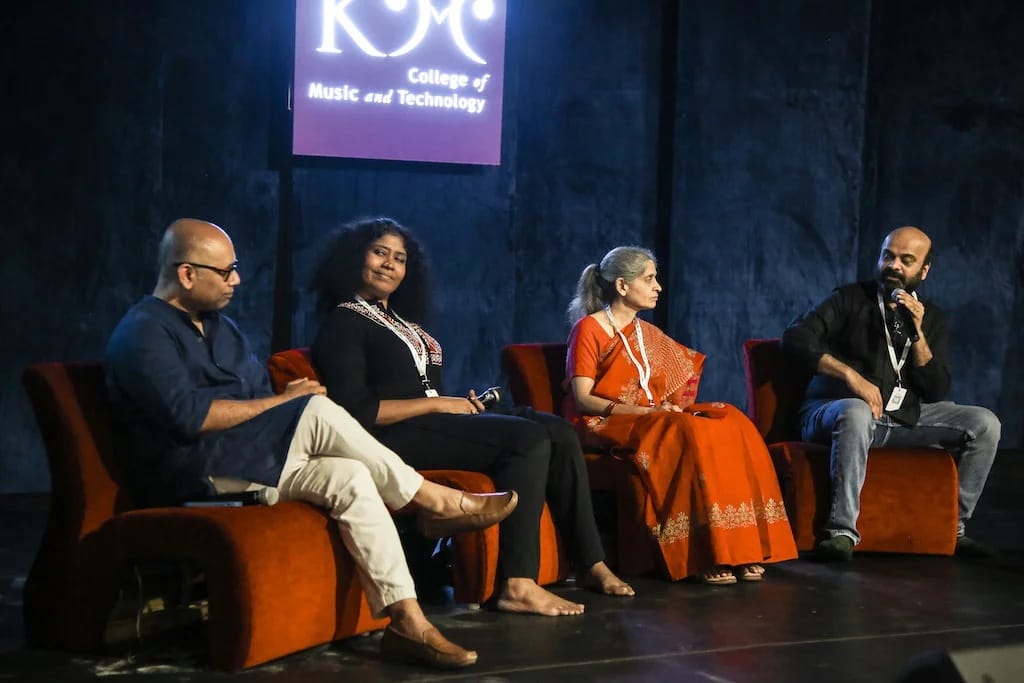Music Education Convergence

The International Society of Music Education South Asia Regional Conference titled ‘Music as Education: Multiculturalism, Learning and Cognitive Enhancement, and Advocacy’ ran at KM Music Conservatory, Chennai, from Friday, November 24th through till Sunday, November 26th. Witnessing both in-person and online delegates representing over 11 countries with more than 60 presenters, the conference explored the development of music education within the entire South Asia region.
Conference Co-Chair Sandra Oberoi, ISME Executive Committee says “Several South Asian nations are revamping their educational policies to move from music as a means to support literacy and numeracy to deepen the scope of what music education should impart – creativity, critical thinking and communication. As we build a case for music advocacy, we are to advance music as an agent to build multicultural understanding and augment awareness of music’s position developing cognitive foundations that are crucial for education.”
Over a period of three days, the conference proceedings unfolded with panel discussions, presentations and workshops across the broader themes of Activating Advocacy, Navigating the complex relationships between music and STEM subjects, Future-proofing and sustainability, and Loosing the past in the present. Keynote presentations were given by renowned Carnatic singer S. Sowmya, Vice Chancellor of Tamil Nadu J Jayalalitha University of Music and Fine Arts, Prof Graham Welch of Institute of Education, University College London, and Prof Bo-Wah Leung, ISME President, The Education University of Hong Kong.
Aligned with the conference the British Council hosted a second music policy round table as recommended in the first music policy roundtable they hosted in Spring 2023, focussed on professional career development, upskilling in music production for employment and musicians’ livelihoods and global bilateral pathways of cultural and education exchange. The round table is driven by the high-level objectives of G20 culture working group to create a unique opportunity for Indian senior policy makers, culture leaders, business leaders and entrepreneurs to draw on UK and global expertise around the framing of music policies in order to strengthen the creative industry in Tamil Nadu.
Janaka Pushpanathan, Director South India, British Council, says, “The longstanding collaboration between Tamil Nadu and the UK has led to this significant focus on inclusive music education. We are delighted to renew our partnership with the state government and KMMC, and collaborate with Guidance Tamil Nadu, for the pioneering Creative Economy Round Table during the Tamil Nadu Global Investors Meet (TNGIM) in January ’24. The British Council is dedicated to developing talent and nurturing cultural exchange and the inaugural event aims to set the stage for crucial policy deliberations by orchestrating two distinct panels. The focus will span from propelling investments within Tamil Nadu’s ecosystem to fostering inclusive, sustainable job opportunities amid rapid technological advancements. This roundtable is a testament to our joint commitment to creating an ecosystem where music education empowers individuals, encourages innovation, and promotes inclusivity. It marks a crucial step towards a future where music education is universally accessible, supporting talent within an inclusive framework.”
These joint events continue to demonstrate the strength of India as an emerging leader in global education and a stimuli for creative developments and the arts.





